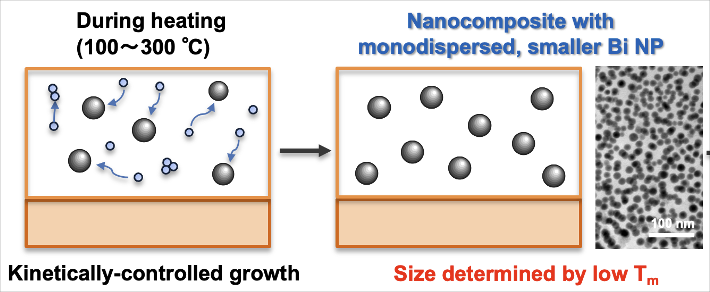T. Kawakami, Y. Takashima, T. Tsuruoka, K. Akamatsu
Chem Lett, 2025, in press.

We fabricated polyimide composite films uniformly dispersed with bismuth nanoparticles by employing an ion-doped precursor and performing in situ hydrogen reduction within the framework of nanoarchitectonics. Upon heat treatment at temperatures exceeding the melting point of bismuth, the bismuth particles underwent liquid-phase growth, resulting in the formation of highly monodisperse bismuth nanoparticles. The particle size increased with annealing temperatures, and highly monodisperse bismuth nanoparticles with diameters ranging from 12 to 25 nm were successfully synthesized by heating up to 400°C. Differential scanning calorimetry (DSC) analysis of the resulting nanoparticle-dispersed composite films revealed that the melting point of the bismuth nanoparticles varied from 235°C to 268°C, depending on their size. These nanocomposite films hold promise for application as phase-change materials (PCMs) capable of storing environmental waste heat.